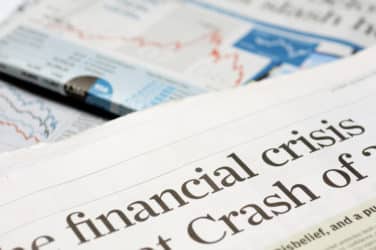

Chris Leeds, head of carbon markets development at Standard Chartered, said this year will be ‘make or break’ for the voluntary carbon market which needs to build trust and integrity.
Leeds spoke on a panel on the prospects for voluntary carbon markets panel at the AFME European Sustainability Conference on 3 May in Amsterdam.
Carbon markets are based on trading of allowances that enable an entity to offset its carbon output and are split into compliance and voluntary categories. Compliance markets tend to be used by governments to establish a carbon price through laws or regulation by controlling the supply of credits which are traded within a controlled emissions trading scheme (ETS). In contrast, voluntary markets are not legally mandated.
On now: prospects for voluntary carbon markets. Speakers from @StanChart @IOSCOPress @AutoriteitFM @WorldBank consider carbon markets can be used to change behaviour and reduce emissions #SusFi2023 pic.twitter.com/rOVcTU5OQM
— AFME (@AFME_EU) May 3, 2023
Leeds explained on the panel that voluntary carbon markets exist in many ways because of a lack of policy and regulation around the compliance markets.
“The EU’s ETS has been very effective over the last 20 years and is increasing its scope so there tends to be less room for voluntary markets in Europe, but many other countries do not have compliance markets,” he added.
As a result voluntary carbon markets have stepped in to fill this gap. However, Leeds stressed that although the markets are voluntary, they still need oversight and regulation.
“This is going to be a year of make or break,” said Leeds. “Trust and integrity is needed to grow the markets to something that is really going to support the transition to Net Zero by 2050.”
Leeds argued that voluntary markets are important because they allow companies to invest in projects that would otherwise not be funded. However, the credits need to be high quality and generated by additive projects, over and above what would have normally happened.
“It is voluntary in terms of how people buy credits, how they make claims around that and how projects are developed,” Leeds said. “We need to see more oversight, more regulation and more integrity.”
Gerko Wessel, senior supervisor of sustainable finance at AFM said on the panel that the Dutch regulatory authority is concerned about claims that companies are making about voluntary carbon credits in their corporate reports. Companies are offsetting emissions with carbon credits of debatable quality, and in addition they may also buy cheap credits instead of putting efforts into emission reduction.
“We cannot offset our way to Net Zero,” added Wessel. “There is also a risk of wasting scarce offset capacity with low-quality carbon credits.”
Standards
Leeds is also a board member of the Integrity Council for the Voluntary Carbon Market.
In March this year the Integrity Council launched its Core Carbon Principles for high-quality credits that create real and verifiable climate impact based on the latest science and best practice. At the same time the council also published the first part of its Assessment Framework, which provides detailed criteria for assessing whether carbon-crediting programs meet the principles.
“The Integrity Council is expecting to add some more details later this year and we hope to issue the first carbon labels sometime in the third quarter of this year,” Leeds said.
What are the #CoreCarbonPrinciples (CCPs)?
?The CCPs are a set of interlinked principles to define a threshold standard to ensure integrity in the voluntary carbon market.
Find out more: https://t.co/N67QUbI7LE pic.twitter.com/h6JZaHcpm6
— Integrity Council for the Voluntary Carbon Market (@ic_vcm) May 3, 2023
The council is aiming to set consistent standards across the market so that fungible credits can be created and buyers know they are really funding reduction, avoidance or removal of carbon emissions. The principles are designed to build trust and channel investment at speed and scale to effective climate solutions by providing an identifiable benchmark for high-integrity carbon credits, regardless of the issuing carbon-crediting program or the type of credit. They are designed to reduce confusion, overcome market fragmentation, and give buyers confidence they are funding projects making a genuine impact on emissions.
Kris Nathanail, senior policy advisor at IOSCO, the international standard setter for securities and derivatives markets, said on the panel there is a huge role for both compliance and voluntary carbon markets in the transition to Net Zero. However, she continued that voluntary carbon markets face a number of issues.
The issues include the quality of the credits, especially as verification is performed by registries which track and report on environmental projects. Carbon offset registries track offset project information including credits generated, ownership, sale, and retirement which is meant to be verified by independent third parties, but this may not always be the case.
Nathanail said: “As a securities regulators we think about the components needed for good, well-functioning financial markets. In voluntary carbon markets we are seeing a lack of integrity and transparency, so they are not developing as they should.”
It is also difficult to find data on the participation of financial institutions in carbon markets according to Nathanail. She argued that financial institutions help with price discovery, market making and liquidity and so are needed in order for carbon markets to meet their social objectives.
In September last year the Financial Markets Standards Board also published its Spotlight Review of the Voluntary Carbon Markets. The FMSB said voluntary carbon markets are one of the fastest growing markets in recent years, and are a vital tool in the race to Net Zero.
“As voluntary carbon credits transition rapidly to the mainstream, FMSB’s report calls for market participants to consciously evaluate the voluntary carbon market’s evolution against its environmental aims, and highlights gaps in the current market ecosystem that may help in its transition into a mature asset class,” said the FMSB.
Derivatives trade body ISDA also published new standard documentation for the trading of verified carbon credits at the end of last year covering spot, forward and options contracts.
In his first derivatiViews blog of the year, ISDA CEO @ScottOMalia explores the role of voluntary #carbon markets and the need for a robust #legal and #regulatory framework: https://t.co/9CbJgokYdC pic.twitter.com/VtBzIU8yxa
— ISDA (@ISDA) January 17, 2023
ISDA said the definitions have been designed to support trading across carbon standards and registries and avoid the need for multiple idiosyncratic documents so the market can scale.
“Of course, robust legal documentation isn’t the only prerequisite for this market to work effectively,” added ISDA. “Market participants also need certainty that the projects they are supporting when they buy voluntary carbon credits have a genuine and verifiable impact on carbon reduction.”









